UFS IP
Filter
Compare
90
IP
from
11
vendors
(1
-
10)
-
Verification IP for UFS
- Avery UFS/Unipro VIP provides a comprehensive verification solution featuring an advanced UVM environment that incorporates: constrained random SCSI and Unipro traffic generation, robust packet and physical layer controls and error injection, protocol checks and coverage, functional coverage, protocol analyzer-like features for debugging, and performance analysis metrics.
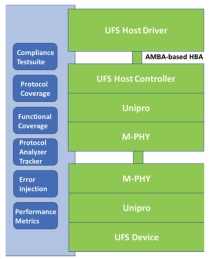
-
UFS 2.1 Stack & Driver
- Compliant with JEDEC UFS HCI 2.0 and MIPI UniPro Specification version 1.6
- Portability in choice of OS, processors and hardware
- Easy-to-use interface for applications
- Fully documented generic device operation API
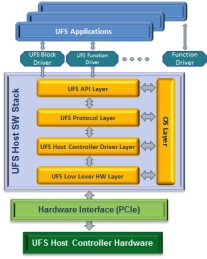
-
UFS Hardware Validation Platform (HVP)
- Compliant to JEDEC UFS 1.0, HCI 1.0, UniPro 1.40
- Available in Host and Device configuration
-
UFS 2.1 Host Controller IP
- JEDEC UFS 2.0 and UFS HCI 2.0 Compliant
- Supports high performance M-PHY v3.0 type-1
- 2 lanes @ 5.9 Gbps per lane
- UniPro v1.6 link layer
- Definable write-protect group size
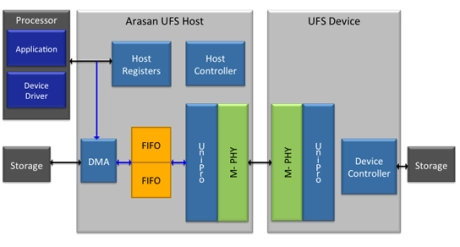
-
UFS 2.1 Device Controller IP
- The UFS 2.1 Device controller uses an M-PHY® 3.1 Adapter Layer backed by a UniPro v1.6 Link layer controller as per the specification.
- The UFS compliant IP cores are interface building blocks that simplify interconnect architectures in mobile platforms.
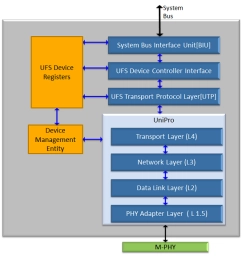
-
UFS 3.0 Host
- UFS 3.0 Host and Device configurations available
- Complete UFS 3.0 hardware implementation
- Interop-proven UniPro 1.8 link layer
- MIPI M-PHY 4.0 Interface
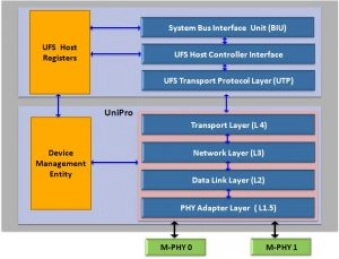
-
UFS 3.0 Device
- UFS 3.0 is the next specification update pending from JEDEC.
- Arasan will offer UFS 3.0 compatible Host and Device Controllers in late Q2 2017 to select customers.
-
UFS 4.0 Host
- UFS 4.0 (JESD220F.pdf)
- UFS HCI 4.0 (JESD223E.pdf)
- MIPI UniPro version 2.0(mipi_UniPro_specification_v2-0.pdf)
- MIPI M-PHY version 5.0(mipi_M-PHY_specification_v5-0.pdf)
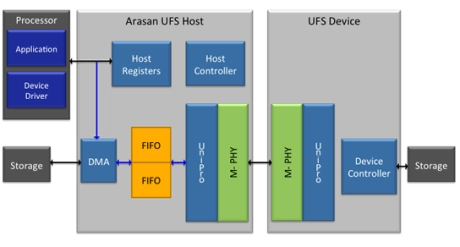
-
UFS 3.1 host
- The Universal Flash Storage 3.1 (UFS 3.1) is a simple but high-performance, serial interface primarily used in mobile systems, between host processing and nonvolatile eXecute-In-Place (XIP) or mass storage memory devices.
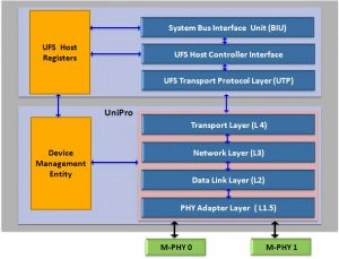
-
UFS 3.1 Device
- UFS 3.1 is the next specification update pending from JEDEC.
- Arasan will offer UFS 3.1 compatible Host and Device Controllers in late Q2 2017 to select customers.